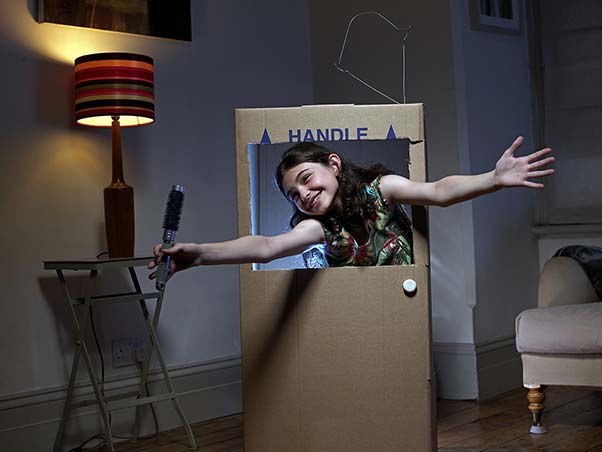Losing someone you love brings profound grief, whether or not you were prepared for the passing. Even as you grapple with your own feelings, you may find yourself suddenly responsible for managing your loved one’s estate.
Whether you’ve been formally named as the estate’s executor or have stepped up to help your family through this transition, estate management can often feel overwhelming. You’ll face the daunting task of sorting through a lifetime of possessions, handling paperwork, and making countless decisions.
At this difficult time, self-storage can offer you space both figuratively and literally during this process, allowing you to make thoughtful decisions while honoring your loved one’s legacy through this final act of care.
Understanding the Task: Belongings in Estate Management
Managing a loved one’s estate after their passing is both an honor and a significant responsibility. Estate management involves not just distributing financial assets but also handling personal belongings that often carry emotional significance.
As an executor or estate representative, your task will be cataloging possessions, determining their value, and ultimately deciding what happens to each item according to your loved one’s wishes or what’s best for their beneficiaries.
The Legal Responsibilities of an Executor
An executor’s duties typically include:
- Getting appraisals for all valuable items
- Paying outstanding debts using estate funds
- Filing final tax returns
- Distributing remaining assets to beneficiaries
The process can be complex and time-consuming. Don’t be surprised if it takes months or even years to complete.
Consider Professional Help
It’s usually a good idea to work with an experienced estate attorney if you’re managing a medium to large estate. An attorney can help you navigate legal requirements, tax implications, and potential conflicts among beneficiaries. Their expertise can be invaluable, especially when you’re dealing with complex situations while also processing your grief.
Practical Estate Management Tips for Sorting Inherited Items
Handling the physical items your loved one left behind can sometimes be the most emotionally challenging aspect of estate management. Creating a systematic approach to cleaning up a deceased estate can make the task more manageable and ensure that nothing is overlooked.
Create a Categorization System
Begin by creating categories for your loved one’s possessions. We suggest:
- Keep for family distribution
- Donate
- Sell
- Discard
You might also want to add a “decide later” category for items you’re unsure about. This approach should hopefully make deceased estate house clearing more organized and less overwhelming. Take photos of rooms before you begin to help with insurance claims.
Professional Appraisals
Consider having valuable items professionally appraised. Family members often disagree about the value of certain possessions, and professional assessments can give you objective information.
Estate Clean Out Timeline
There is no universal timeline for when to dispose of a deceased person’s belongings. Some items may need prompt attention due to financial or practical reasons, while others can wait until you and other family members feel emotionally ready. Self storage provides the gift of time for these sensitive decisions.
How Self Storage Provides Support During Estate Management
During the complex process of estate management, self storage can give you some much-needed breathing room. When you’re faced with a house full of belongings and difficult decisions, a storage unit offers you an interim solution so you can move at your own pace. This can be especially helpful if you and/or the family want to sell the home quickly, but you haven’t had time to distribute all of the deceased’s possessions.
Storage units provide a secure environment where valuable or sentimental possessions can remain while you navigate the legal process or wait for family members to collect their inherited items. This middle step in the deceased estate clean-up process helps you avoid rushing decisions that you might regret later.
Additionally, keeping estate items organized in storage will make the eventual distribution to beneficiaries more manageable. You can catalog the items in storage and access them when needed without the expense of keeping the original property.
If you plan to store delicate or sensitive items, such as artwork, photos, documents, or antique furniture, consider looking for a climate-controlled storage unit to help protect these valuable items from temperature fluctuations.
Finding Peace During Difficult Transitions
Estate management is rarely easy, but the right resources can make it a more manageable task. Price Self Storage® offers a range of solutions for those navigating estate transitions. Our storage facilities, located throughout California, provide storage units in various sizes, including large and extra-large units that can fit entire households. We also offer vehicle storage and climate-controlled units at select locations.
When you’re ready to tackle deceased estate clean-up, we’re here to help with flexible month-to-month leases and security features that give you peace of mind. With Price Self Storage, you can find the storage solution that gives you the time and space you need to honor your loved one’s legacy with care and intention.
Find a Price Self Storage near you today.
Estate Management and Storage FAQs
We’re here to provide as many estate management tips as possible, especially when it comes to how self storage can assist with the estate management process. Take a look at our top answers to your most pressing questions.
What’s involved in managing personal belongings in an estate?
Estate management of personal belongings involves inventorying all items, determining their value, and deciding what to do with each possession. This includes sorting items for distribution to heirs, selling valuable pieces, donating usable items, and disposing of the rest responsibly.
How can I cope emotionally while sorting a loved one’s belongings?
Going through the things of someone you just lost can be incredibly difficult. Take breaks when you need to, and consider recruiting a close family member or friend to help with the sorting process. Certain items will likely trigger strong emotions, and that’s normal.
Try setting aside particularly meaningful objects for later decisions if you’re not ready to handle them in the moment. Remember, there’s no “right” timeline for grief.
What are practical tips for sorting inherited items during estate management?
One of the best tips for deceased estate house clearing is to create clear categories for each belonging. The categories are: keep, sell, donate, discard, and decide later. Work methodically, room by room, to inventory and categorize all items. You may even want to consider using color-coded stickers to mark items.










